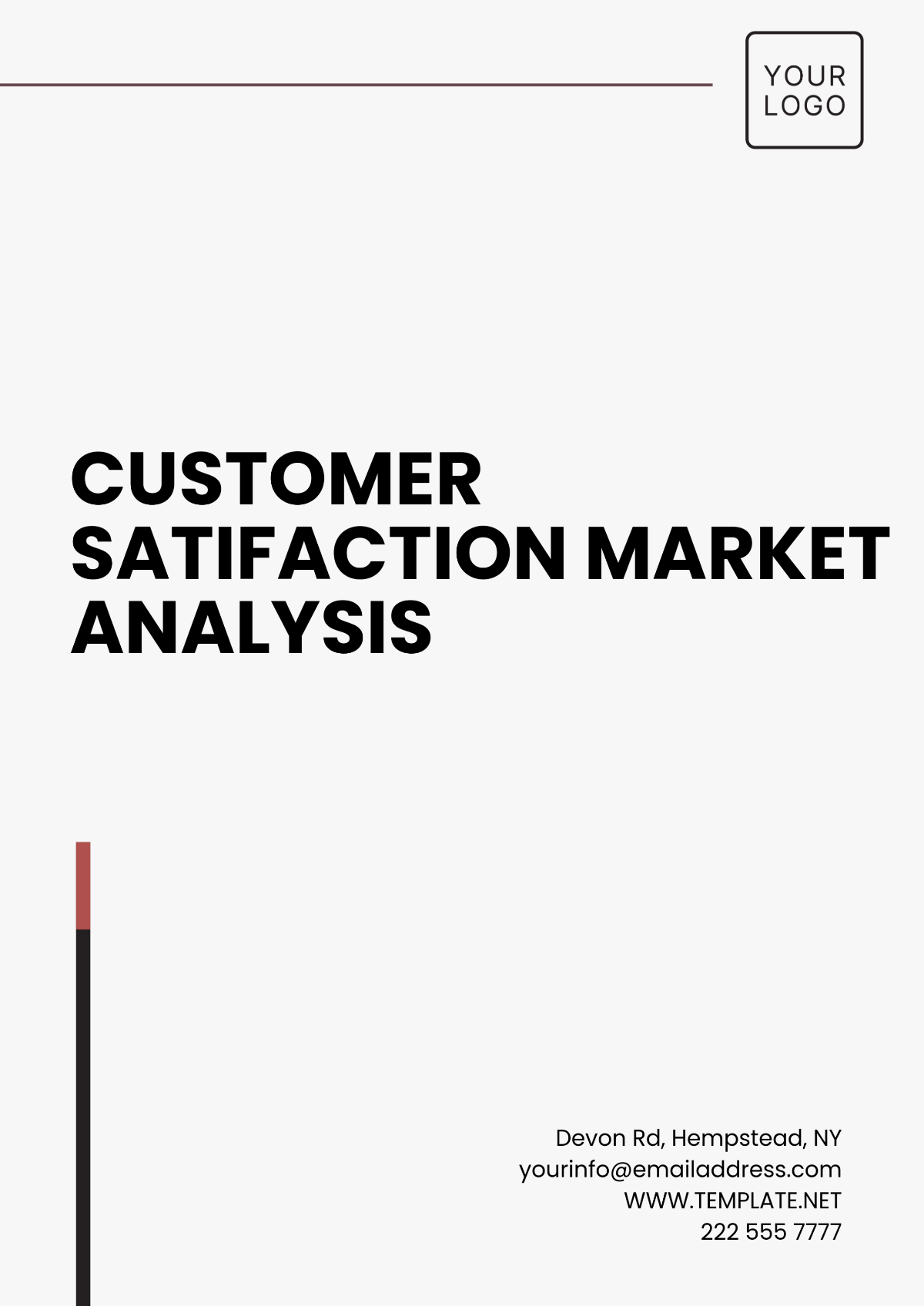Marketing Analysis Standard Operating Procedure (SOP)
I. Title and Purpose
This Marketing Analysis Standard Operating Procedure (SOP) is designed to provide [Your Company Name] marketing professionals with a comprehensive and standardized framework for conducting marketing analyses. The purpose of this SOP is to ensure that all marketing analyses undertaken by our team are consistent, thorough, and compliant with US marketing legal and standard guidelines.
By following the guidelines outlined in this SOP, marketing professionals at [Your Company Name] can effectively collect and analyze data, assess market trends, evaluate competitors, and make data-driven marketing recommendations. This SOP aims to enhance the quality of marketing analysis, streamline processes, and ultimately contribute to more informed decision-making, thereby helping us achieve our marketing objectives.
II. Scope
This Marketing Analysis Standard Operating Procedure (SOP) is applicable to all marketing professionals at [Your Company Name] involved in marketing analysis activities. The scope of this SOP encompasses the entire marketing analysis process, from data collection to recommendations. It applies to analyses conducted for all products, services, or markets under the purview of [Your Company Name].
Marketing professionals are expected to utilize this SOP when conducting market research, competitor assessments, trend analysis, and SWOT analysis. The guidelines provided herein should be followed to maintain consistency and uphold the highest standards of professionalism in marketing analysis activities.
Adherence to this SOP ensures that all marketing analyses performed by [Your Company Name] align with our corporate objectives.
III. Responsibilities
In this section, we outline the key responsibilities of marketing professionals and team leads or managers at [Your Company Name] when conducting marketing analysis. These responsibilities are pivotal to ensuring the accuracy, consistency, and compliance of our marketing analysis activities. Please refer to the following subsections for detailed guidance.
Role | Responsibilities |
Marketing Professionals |
|
Team Lead or Manager |
|
Data Collection |
|
Data Analysis |
|
Reporting |
|
Compliance |
|
IV. Data Collection
In the pursuit of informed marketing decisions at [Your Company Name], the Data Collection section plays a pivotal role. This section outlines a structured six-step process for systematically collecting both quantitative and qualitative data. These steps ensure that data is gathered comprehensively, ethically, and with precision, forming the bedrock of our marketing analysis activities. Please follow the process below for effective data collection.
By adhering to this systematic six-step approach, we empower marketing professionals at [Your Company Name] to gather data effectively, enabling well-informed marketing decisions.
V. Data Analysis
Data analysis is the core of effective marketing insights at [Your Company Name]. Marketing professionals are tasked with employing rigorous analytical tools and techniques to interpret collected data accurately. The analysis phase involves scrutinizing both quantitative and qualitative data to uncover patterns, trends, and meaningful insights. It is crucial to maintain objectivity and ensure the absence of bias throughout the analysis process. By utilizing appropriate methodologies, statistical tools, and software, we extract valuable information that forms the basis for strategic marketing decisions. The insights gained from data analysis empower us to adapt and refine our marketing strategies, ultimately achieving our objectives with precision.
VI. Competitive Analysis
In the highly dynamic realm of marketing, understanding and responding to the competitive landscape is paramount. The Competitive Analysis section of this SOP equips marketing professionals at [Your Company Name] with the essential tools to assess competitors, recognize their strengths and weaknesses, decipher their market positioning, and gain strategic insights. These comprehensive analyses form the cornerstone of our strategic decision-making, enabling us to adapt and thrive in a competitive market environment.
Below is a list of focused guidance on different aspects of competitive analysis:
Identify Key Competitors: Learn how to pinpoint the primary players in our industry or market segment.
Competitor Profiling: Dive into the details of competitor backgrounds, product offerings, market share, and customer base.
Strengths and Weaknesses: Explore the process of evaluating competitors' strengths and weaknesses to uncover opportunities and threats.
Market Positioning: Understand how competitors position themselves and how they are perceived by customers.
SWOT Analysis Comparison: Compare our own SWOT analysis with competitors' to gain strategic insights.
VII. Market Trends
In the ever-evolving landscape of marketing, the ability to identify and respond to market trends is paramount. The Market Trends section of this SOP equips marketing professionals at [Your Company Name] with the tools and strategies necessary to recognize, track, and analyze prevailing market trends. These insights enable us to stay ahead of the curve, adapt swiftly, and capitalize on opportunities in the dynamic marketplace. Here’s a list of comprehensive guidance on various aspects of market trend analysis, empowering our team to make informed decisions and maintain our competitive edge.
Identifying Market Trends
Data Sources for Trend Analysis
Analyzing Consumer Behavior
Technology Trends
Industry Dynamics
VIII. SWOT Analysis
SWOT analysis is a critical strategic tool employed by [Your Company Name] to assess internal strengths and weaknesses, as well as external opportunities and threats. This section outlines the structured approach to conducting a SWOT analysis, enabling marketing professionals to gain a comprehensive understanding of our organization's current position in the market. By identifying internal strengths and weaknesses, we can capitalize on advantages and address challenges. Simultaneously, recognizing external opportunities allows us to seize potential avenues for growth, while understanding threats helps us to proactively mitigate risks. The insights derived from a SWOT analysis are invaluable for shaping our marketing strategies, making informed decisions, and ultimately achieving our marketing objectives with precision.
Strengths | Weaknesses |
|
|
Opportunities | Threats |
|
|
IX. Recommendations
Within this section, we present a series of actionable strategies that are vital for our marketing professionals. These strategies are designed to capitalize on our strengths, address our weaknesses, seize opportunities, and proactively confront threats. They serve as guideposts, illuminating the way to achieving our marketing objectives with precision and effectiveness.
Our marketing success hinges on the implementation of these recommendations. They are more than just ideas; they are the practical steps that will shape our marketing campaigns, product enhancements, resource allocation, competitive positioning, and risk mitigation efforts.
Now, let's delve into these actionable recommendations:
Market Strategy Recommendations
Unleash the power of emerging trends and untapped opportunities to carve out a commanding competitive edge. It's about embracing change, shaping market dynamics, and positioning ourselves as trailblazers in our industry.
Competitive Positioning Recommendations
Forge an unassailable position by amplifying our inherent strengths and adeptly mitigating weaknesses. This is our chance to define the narrative and assert ourselves as the leader in the market.
Product or Service Enhancements
Elevate our offerings to surpass customer expectations. It's not just about meeting needs; it's about delighting customers with innovation, quality, and an unforgettable experience.
Marketing Campaign Strategies:
Precision is the name of the game. Tailor our campaigns to precisely target audiences, ensuring every message hits its mark. Optimize channel selection to maximize reach and engagement.
Resource Allocation Recommendations
Every resource is valuable; let's make the most of them. Maximize efficiency in budget allocation, time management, and manpower utilization to get the most bang for our buck.
Risk Mitigation Strategies:
Prepare for the unexpected by identifying and proactively addressing potential threats. It's about safeguarding our endeavors and ensuring resilience in the face of challenges.
These concise recommendations serve as actionable directives, ensuring our marketing efforts remain focused, efficient, and aligned with our objectives.
X. Reporting
The Reporting section is instrumental in upholding our commitment to transparency and informed decision-making at [Your Company Name]. It serves as the bedrock for documenting and communicating the outcomes of our marketing analyses and strategy recommendations. Our reports not only track progress but also ensure that we remain closely aligned with our marketing objectives, providing invaluable guidance for future actions.
Now, let's explore these the specific areas of focus, each offering distinct insights and guidance:
Data Presentation and Visualization
Within this sub-section, we delve into effective techniques for presenting data. We harness the power of visual aids like charts, graphs, and dashboards to enhance accessibility and actionability.
Key Performance Indicators (KPIs)
Discover the art of selecting and tracking KPIs that closely align with our marketing objectives. These KPIs serve as our compass for precise measurement of success.
Progress Tracking
Learn about the methods we employ to track and report on the progress of our marketing initiatives. This ensures that our endeavors remain harmonious with our goals and timelines.
Communication and Stakeholder Engagement
Understand the strategies for effectively communicating findings, progress updates, and recommendations to stakeholders.
Report Documentation
Delve into the significance of comprehensive and well-organized documentation. This meticulous approach ensures that insights and strategies are systematically recorded for future reference, thereby nurturing continuous improvement in our marketing endeavors.
We have outlined a framework to ensure consistency, thoroughness, and compliance with US marketing legal and standard guidelines in our marketing analyses. This SOP serves as a valuable resource for all marketing professionals at [Your Company Name], offering a structured approach to conducting marketing analyses.
We trust that our marketing professionals will adapt these guidelines to the specific context of each analysis, allowing room for creativity, innovation, and adaptability. By doing so, we empower our team to make data-driven marketing decisions that align with our corporate objectives. Please remember that the essence of this SOP lies in maintaining the highest standards of professionalism, ethical standards, and compliance with regulations in all marketing analysis activities.
Marketing Templates @ Template.net

















































